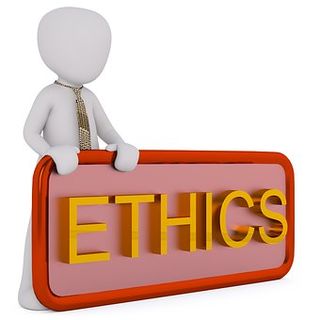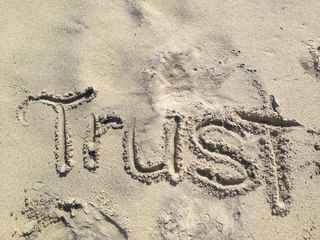Career
Lies in the Workplace
The effects of honesty and dishonesty on the job.
Posted July 29, 2019 Reviewed by Ekua Hagan

I once had a manager at work who stood in front of our division and shared some very unwelcome news with all of the employees. The bad news was that everyone was going to have to perform extra duties and spend more time in the office. My manager stated that the unfortunate new requirement was being driven by the upper leadership in the organization. Everyone was quite annoyed at what they viewed as an unfair and unjustified new requirement.
However, when pressed for more details, the manager finally admitted that the new requirement was their own, not one generated by the upper leadership of the organization. My manager had been caught in a lie. This seemingly small instance of dishonesty had surprisingly large and far-reaching negative repercussions.
Unfortunately, lying is not particularly rare in the workplace. People engage in all manner of workplace dishonesty. People lie about their qualifications during job interviews, they claim sick days when they are healthy, they exaggerate their productivity, they conceal their mistakes and failures, they take credit for others’ work, and they deceptively undermine others with whom they are competing for promotions or other limited resources.
While deceptive coworkers sometimes tell outright lies, they often draw from a slew of shady approaches that undermine trust and violate coworkers’ senses of moral decency, forthrightness, and integrity. They often try to maintain a shroud of secrecy over their true agendas. Their behaviors sometimes seem bizarre, usually because their actual goals are concealed by misdirection and obfuscation. All of this scheming violates our desired organizational styles and cultural norms.
Consequences of Workplace Lies
Lies taint and corrupt the workplace. Lies from the top can taint and corrupt the entire organization. Workplace lies add up in their consequences. The Association of Certified Fraud Examiners estimates that organizations lose $3.5 trillion each year due to deception and fraud.
While that number is staggering, it fails to capture the hidden costs that workplace lies have on organizational climate, employee morale and satisfaction, and organizational productivity. When lies are pervasive at work, people can no longer trust each other. When trust is in short supply, everyone must be cautious, as one can never be sure if they will be taken advantage of, thrown under the bus, swindled, or otherwise mistreated. In short, when coworkers are dishonest with each other, the collapsing organizational trust can render the organization ineffective.
Reasons People Lie at Work
Why do some people lie at work? One reason people lie at work is that they are, by nature, fairly dishonest people. We each have our own unique personality, and some of those around us are simply more selfish, manipulative, uncaring, and exploitative than we are. These people see others as pawns to be used for their own advantage. They have no reservations about lying to get what they want.

Kim Serota and Timothy Levine studied “prolific liars” and found that they are much more likely to be reprimanded at work or fired. Not surprisingly, these exceptionally dishonest folks don’t fare too well in their romantic relationships either.
But even a typically honest coworker may lie occasionally. People inherently have a dual nature, usually behaving in cooperative ways, but occasionally revealing a competitive and self-serving side.
A number of workplace environmental factors can increase the odds that your coworkers will lie. Some of these factors are unrealistic expectations, intense competition, and harsh consequences for failure. If several employees are pitted against each other in a competition for limited payoffs, lying and cheating are likely outcomes. Poorly designed incentive structures lead to cheating.
People also lie for less sinister reasons. Some people find it challenging to be honest because they fear criticism, they are prone to embarrassment, or they have a strong need to be liked or to fit in. Many times coworkers tell lies for benevolent reasons. For instance, in order to spare your feelings, a coworker may tell you that you are doing a great job even when you are not.
Secrecy is another corrosive form of dishonesty that can undermine an organization. When leaders and coworkers obfuscate the truth, nobody is privy to what is really happening. I have worked in places where each person had access to only small pieces of information. The leaders in the organization used secrecy to maintain control.
When the truth is concealed and reality is distorted, how can an organization function well? When employees sense that the truth is being hidden from them, trust crumbles away.
Cultivating an Honest Workplace
Everyone wants to work with people they trust. How do we create and cultivate such a workplace environment? Honest leaders are a prerequisite for an honest and open workplace. When leaders in the workplace lie, their subordinates are likely to follow suit and are less likely to feel guilty about it.
One can easily find examples of massive corporate corruption scandals such as Enron, Volkswagen, and Wells Fargo, in which unethical corporate leaders modeled a pattern of dishonesty that was imitated by their subordinates, eventually leading to catastrophic organizational failures. Honest leaders are a critical ingredient for honest workplaces.

While organizational leaders are key in setting a tone of honesty, all employees can play a role in cultivating an environment in which candor and veracity reign. It all starts with intention.
A simple first step is to broach the topic of honesty. You can discuss ways to promote openness, honesty, and integrity in the workplace. If you are in a leadership position, you can help develop and promote a set of ethical standards that have openness and honesty as cornerstones. Research on honesty shows that in some cases providing a simple reminder of ethical responsibilities can encourage more honest and ethical behavior.
You can also work to reduce the overly critical or punitive practices that might push coworkers toward dishonesty. Employees who feel unfairly treated are significantly less likely to support their organization with honest behavior.
In a recent report from the Harvard Business Review, hundreds of business leaders from around the world were asked to rank the most important characteristics of effective leaders. Far and away, the top trait was “has high ethical and moral standards.” This result is a clear indication that operating honestly is seen as key to the survival and proper functioning of any organization. Leaders who model honesty and high ethical standards instill confidence in all members of the organization that they will be treated fairly. When people feel like they will be dealt with honestly and fairly, they are more productive.
Promoting an ethical code of honesty can be quite simple. Many business ethicists point to a simple moral code developed by the American businessman Herbert Taylor. He claimed that his simple moral code reshaped his faltering business, transforming it into a model of success secured in an ethical foundation. His code, called the four-way test, was based on four simple questions that we should ask about each of our thoughts, words, or actions at work:
- Is it the truth?
- Is it fair to all concerned?
- Will it build goodwill and friendships?
- Will it benefit all concerned?
This simple test is widely used as an easy-to-remember moral code in organizations around the world. If one considers lies and deception, one can see that such workplace behavior violates every element of the four-way test. Consider any workplace lie and examine how it stands up to the four-way test.
Trust
Ideally, the workplace is a cooperative environment in which people band together to address a need or provide a commodity or service that could not be generated individually. The currency with which we operate in cooperative teams is trust. Organizations thrive when there is trust. So what is trust? Trust is an arrangement in which we expect and believe that another person will reliably be fair, honest, and kind toward us.
Likewise, for others to trust us, we must show them that we are trustworthy. We do this through our actions, not our words. We must adhere to an explicit ethical standard that insists on truth, earnest, fairness, and integrity. When we model honesty, we set the conditions in which the people around us will trust us and give us the honesty that allows us to trust them. The currency of trust is the absolute bedrock of relationship bonds. Show me any form of relationship without trust, and I’ll show you two people who cannot effectively work together.

When we know that someone is dishonest, we don’t trust them. We feel anxious when we must work with them. Even when the working relationship is temporarily going well, we are vigilant, looking for evidence that the untrusted person is going to undermine us or let us down. If we feel enough distrust toward someone, we begin to actually fear them. We tend to withdraw from them, avoiding engagement at all costs. Effectively, the working relationship is over.
Honesty and trust, as it turns out, are powerful tools in the workplace. In her book, Trust in Modern Societies, professor Barbara Misztal makes a compelling case that trust operates in three profound ways in cultures around the world: It makes living with others predictable, it fosters a sense of community with others, and it facilitates cooperative work.
When there is honesty and trust, constant supervision and micromanagement are not needed, and organizations are cut loose from the binds of vigilance and paranoia. The organization can thrive. In honest organizations, people are happier and they work harder. When we work with people we trust, we feel safe to take the kinds of risks that allow organizations to innovate and expand. When coworkers trust us, we gain influence. When we trust them, we allow them to influence us.
We must be mindful that trust in the workplace is extremely fragile. There is a stark asymmetry between building trust and destroying it. Trust is a precious commodity that can take years of effort to cultivate, yet can be squandered in an instant of dishonesty. It is also important to keep in mind that trust is built on honesty, but as James E. Faust once said, “Honesty is more than not lying. It is truth-telling, truth speaking, truth living, and truth loving.”
Honesty in the workplace is an active and intentional process in which we strive to shine the light of truth, removing the hidden dark corners of deception and secrecy. Cultivating a truth-loving environment in your workplace is a powerful endeavor that can reshape the essence of your work life. It all starts with you.




